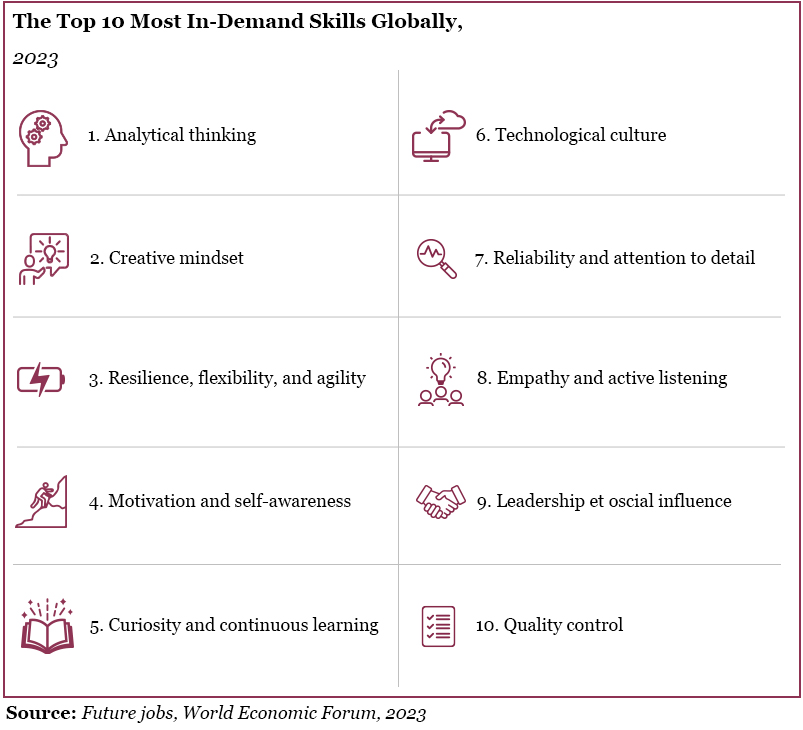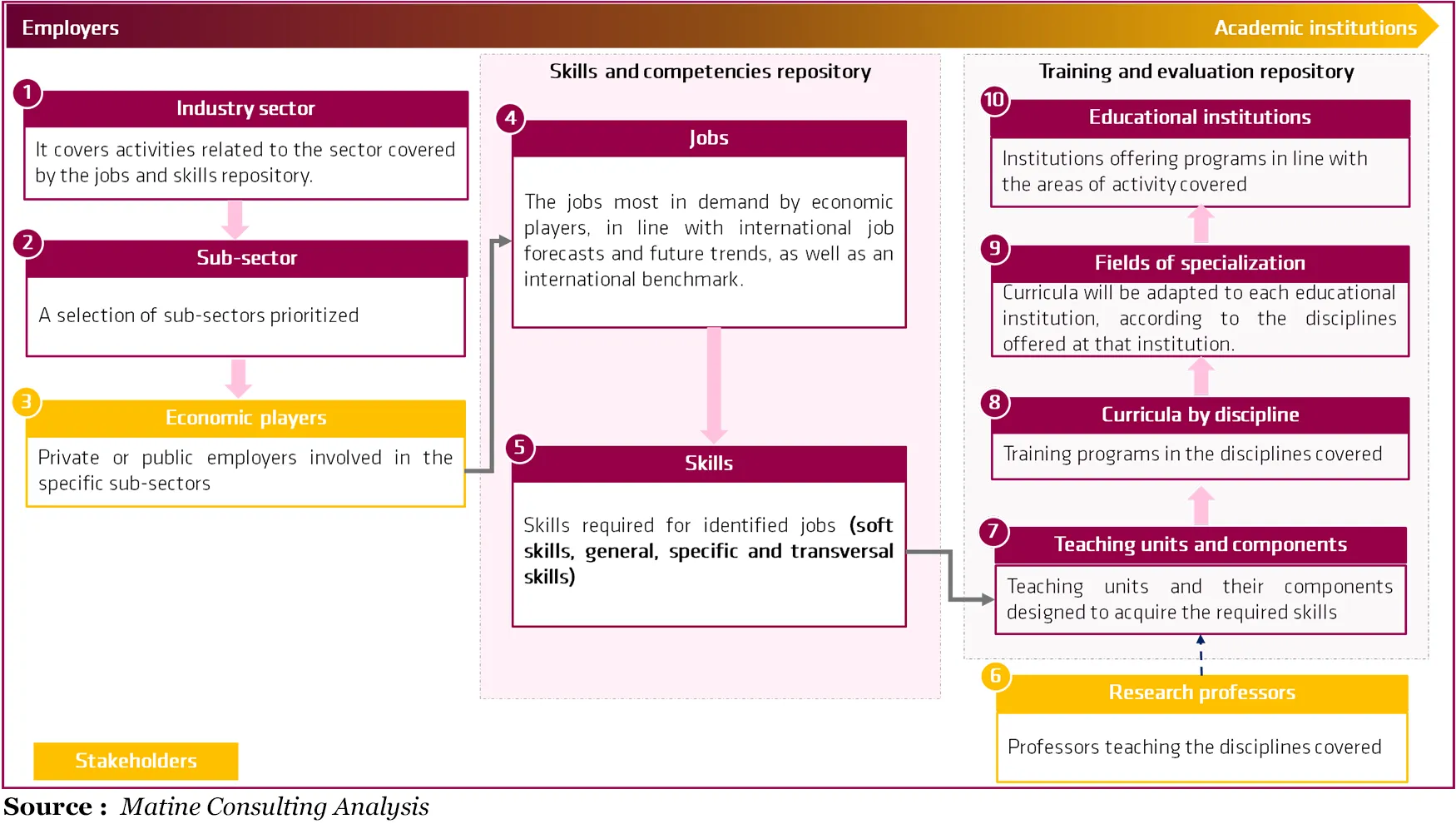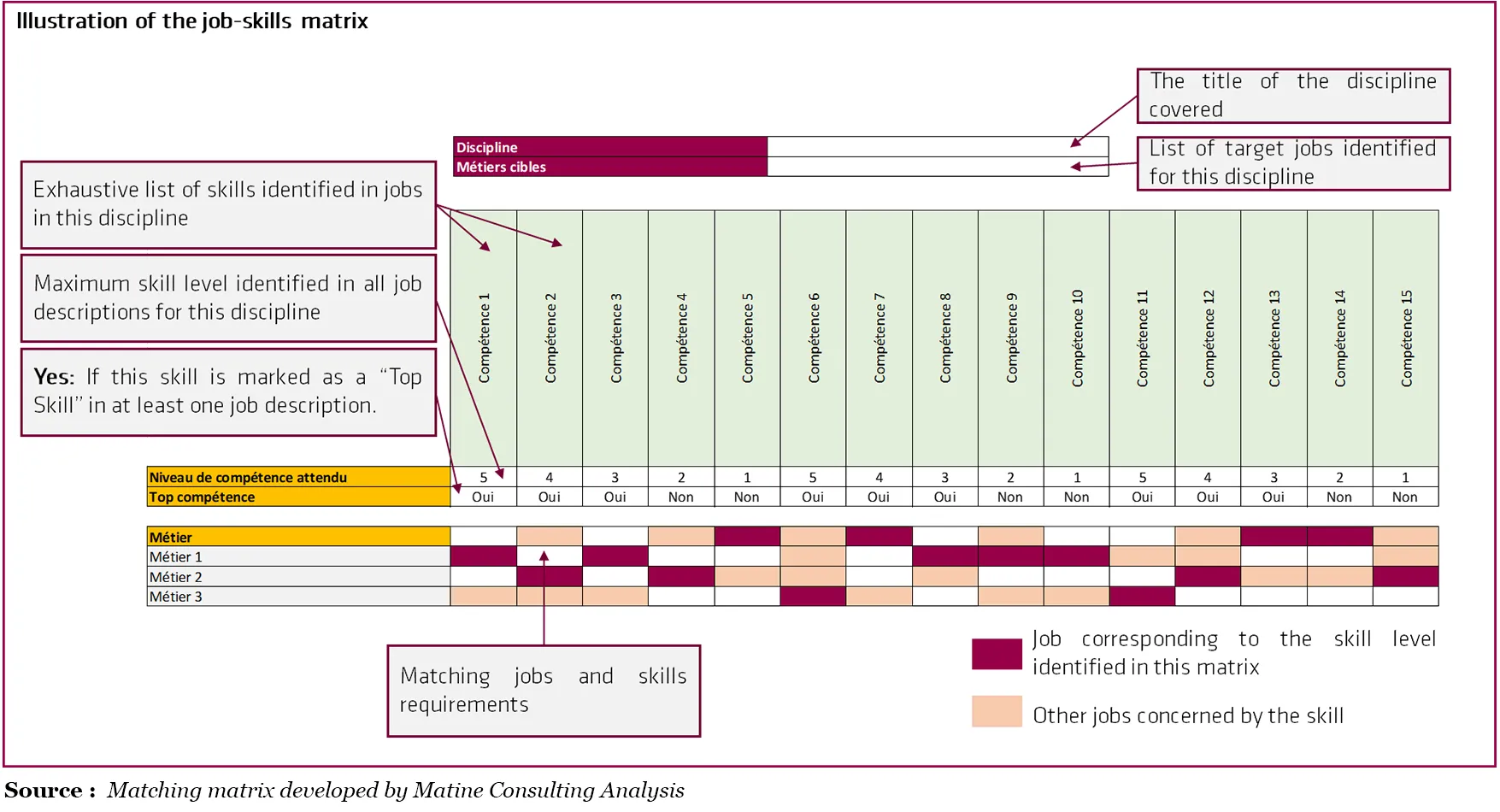The professional integration of young graduates in the era of digitalization and climate change in emerging countries
The observation is unequivocal: the professional integration of young graduates is becoming increasingly difficult in emerging countries, particularly in Africa where about 60% of the unemployed are young graduates, mainly due to the mismatch between the education they receive and the needs of employers.
Indeed, the labor market and employer expectations are evolving at an extremely rapid pace. New professions are emerging, and others are evolving or disappearing, particularly driven by technological advancements – such as artificial intelligence (AI) – and new paradigms of climate change.
For example, according to a study by the World Economic Forum, about 14 million jobs could be lost worldwide by 2027 due to AI. In South Africa, machine learning, artificial intelligence, and advanced robotics could lead to the loss of 3.3 million existing jobs by 2030. Climate change could result in the loss of 80 million jobs by 2030, mainly in South Asia and West Africa.

Employers in emerging countries, mostly small and medium-sized enterprises with limited resources and exposed to multiple risks and challenges, are now looking for versatile profiles capable of adapting to a constantly changing professional environment but whose cost remains in line with their means. They must also devote considerable resources to training their staff, which reduces their profit margins and harms their competitiveness. A lack of adequate skills can limit innovation, the adoption of technological advances, and the ability to adapt to climate change risks, thus hindering long-term economic competitiveness. Moreover, a deficit of suitable skills can deter foreign direct investment (FDI), thereby limiting capital flows, job creation, and technology transfer.
Versatility increases the employability of individuals, which is beneficial for both employees and employers, especially in SMEs where flexibility is crucial. It allows employees to broaden their skills, be more flexible, and seize new opportunities. For employers, the versatility of employees translates into better resilience to professional hazards, including digitalization and climate change, and an increased ability to mobilize human resources according to specific needs.
New requirements and requested skills for Educational Systems
Current university programs often struggle to keep up with the changes in the job market, creating a significant gap between the skills acquired and those demanded in the labor market. This mismatch results in more difficult professional integration, a growing unemployment rate, with significant social and economic impacts.
The skills needed in today’s job market are shaped by technological, economic, and social changes. Emerging jobs as AI specialists, robotics engineers, and data analysts are in high demand. These roles require specific skills such as algorithmics, programming, or data analysis.
Economic changes, such as the transition to a digital, green, and sustainable economy, also influence the required skills. Companies are looking for employees who can learn and adapt quickly and solve problems. Project management, critical thinking, and problem-solving are more important than ever.

Imperative of continuous adaptation of the Educational Systems: From knowledge to evolving knowledge
These changes highlight the importance of investing in the development of appropriate skills and adopting a proactive approach. Educational systems must integrate global employment trends and employer needs while considering their local context. Educational programs should include essential skills such as soft skills, analytical thinking, and complex problem-solving, to adapt to the new global reality, with a particular focus on digitalization.
Some traditional professions are indeed threatened with obsolescence due to automation and digitization, highlighting the importance of reinventing teaching units and courses to meet current labor market needs. However, this evolution is not limited to the disappearance of certain professions. Many jobs are being transformed to adapt to new technologies and changing market needs. At the same time, new professions are emerging to address the challenges and opportunities of the digital age.
The “augmented” Skills-Based Approach: A suitable tool for the continuous improvement of training curricula
The Skills-Based Approach (SBA) focuses on acquiring skills rather than accumulating knowledge, thus addressing the challenges of higher education.
This approach is based on the correspondence between targeted jobs and required skills, as well as the skills and teaching units needed to design relevant training programs. For each job, a set of skills are identified and categorized into four categories: soft skills, transversal skills, general skills, and specific skills.

Implementing the skills-based approach is not without challenges :
- Educational institutions first face the low level of knowledge of the socio-professional environment, which is constantly evolving. This is mainly due to the lack, or even absence, of monitoring systems and close links with the professional world and employers.
- They then struggle to establish a common understanding of skills according to different levels, both from the perspective of employers and the academic world.
- Finally, aligning the skills required by the labor market with those developed in the taught disciplines proves complex in practice.
The implementation of the Skills-Based Approach in collaboration with educational institutions across various fields of study has enabled us to develop practical tools, such as “skills dictionaries” and “matching matrix”. These tools facilitate effective communication and support a seamless transition between job/skills repositories and training/evaluation repositories.

This “augmented” Skills-Based Approach allows universities and educational institutions to equip themselves with the capacity for continuous improvement of the relevance of their training offers. However, they must also maintain a continuous monitoring system of ongoing global transformations. Rapid and continuous advances in areas such as AI, climate change, quantum computing, and many others require constant updates to educational systems and programs to better prepare graduates for the future.
Authors:










